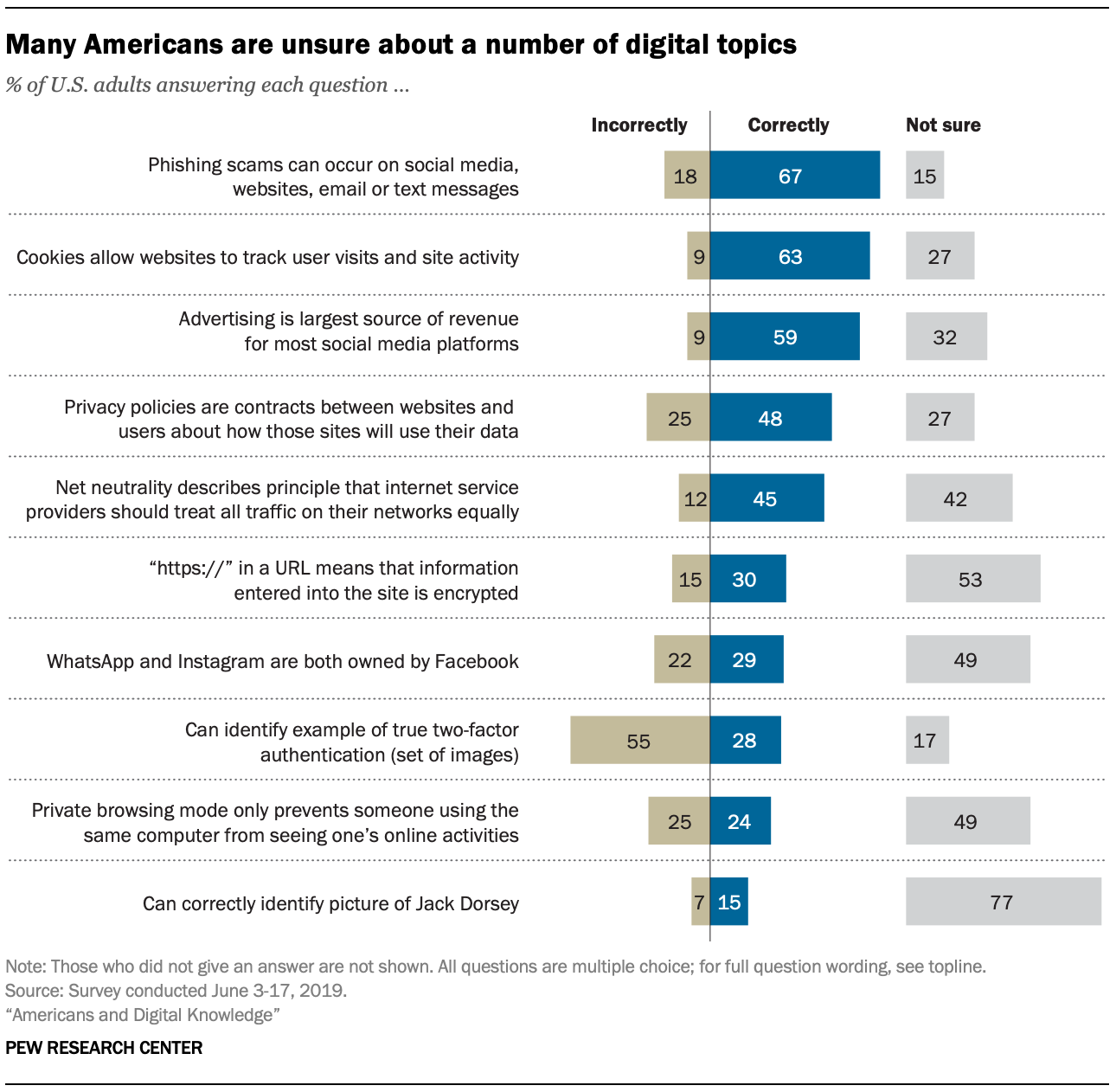When it comes to digital proficiency, the average American may have less of an understanding of technology-related challenges than we assume.
According to a report, released online by Pew Research Center, the majority of adults in the U.S. may struggle if faced with particular cybersecurity or privacy-related challenges.
In the report were the findings of a survey involving 4,272 adults residing in the U.S. throughout June of 2019. Appearing in the survey were 10 questions used to measure the participants’ knowledge of several tech-related topics.
Of the 10 questions, only three were correctly answered by the majority of the participants: Phishing scams were answered accurately by 67%, or two-thirds of the participants; 63% understood the use of web browser cookies; and 59% were knowledgable on the topic of advertising and social media revenue.
Monica Anderson, the study’s co-author, writes: “Additionally, 48% of adults correctly answered that a privacy policy is a contract between websites and users regarding how their data will be used, while 45% know that net neutrality refers to the principle that internet service providers should treat all traffic on their networks equally. Other concepts in the survey are far less familiar to the public.”
Among the most challenging questions was regarding the two-factor authentication, answered incorrectly by more than 50% of the participants.

“It is important to note that while the share of adults who can correctly answer questions about these issues varies across topics, Americans are more likely to express uncertainty about the topic than give inaccurate answers in most cases,” Anderson wrote.
“Nearly one-in-five adults (17%) say they are not sure how to identify an example of two-factor authentication, and 15% say they do not know where phishing scams occur.”
“These shares, however, are relatively small when compared with a number of other questions in this survey where “not sure” responses are far more common than incorrect answers.”
Furthermore, the survey also showed that higher educational attainment was correlated with answering more tech-related questions correctly, as was the younger age group of adults. “Roughly four-in-ten adults with at least a bachelor’s degree accurately answered seven or more questions (37%), compared with 20% of those with some college experience and just 9% of those with a high school education or less,” Anderson concluded.
Pew Research Center is a nonpartisan think tank devoted to social issues through the use of public opinion polling and social/demographic research.


